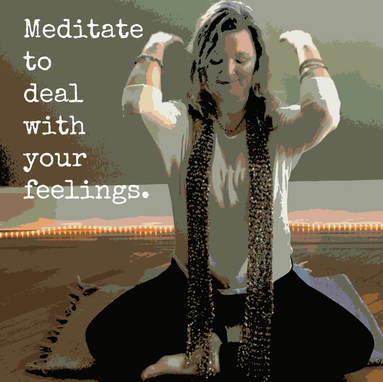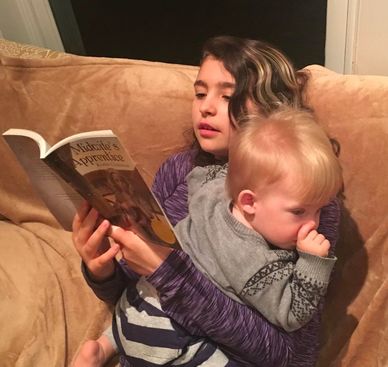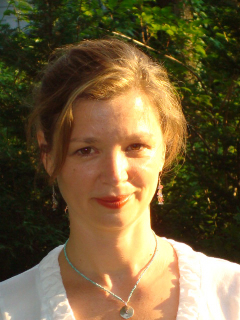 I know my way around a baby. I've been taking care of babies since I was a teenager. But a few weeks ago, I had a humbling experience that taught me not only about babies but about all of us and our feelings. My daughter (Gwen) and I were babysitting my 18-month-old nephew, Remy. When my sister left, he began to cry and call out for "Mommy." This wasn't surprising. It was to be expected. I knew what to do. I sprung into distraction mode. Get his mind on anything except the fact that his mommy isn't here. I grabbed books and toys off the shelf: "Look at this truck." "Want me to read about the caterpillar?" "Here's your doggie." He cried harder and louder. Gwen looked at me like I was crazy and said, "Mom, stop." She scooped Remy up and carried him to the rocking chair. She looked him straight in the eyes as she rocked and with so much compassion, she said, "You miss your mommy; You're really sad; You want your mommy to come back." As she sweetly said these words, he looked right back at her, and his wails became whimpers. She kept saying them over and over, as I watched in awe. Remy put his thumb in his mouth and stayed focused on her, "You really, really want your mommy to come back right now." Then, his eyelids got heavy and moments later he fell asleep in her arms. Later, I asked Gwen how she knew to do that. She explained that she put herself in Remy's shoes. If it were her, she'd be so frustrated trying to tell people she's sad and she misses her mommy and people are showing her trucks. Isn't my daughter amazing? Isn't that insightful? What Remy needed was not a stuffed doggie but his feelings acknowledged. Once validated, the acuteness of his feelings began to dissolve.  Another cuddly moment with Gwen & Remy Another cuddly moment with Gwen & Remy It got me thinking that we all need that. The problem is that when something makes us sad or mad or overwhelmed or confused, we can't, as adults, cry out and have someone validate us and rock us to sleep. I mean, it could happen. But let's face it, it's unlikely. So what do we do? How do we acknowledge our pain and move beyond it? As I see it, we meditate. We get quiet and allow the feelings and painful thoughts that we don’t talk about, that we can’t talk about, to rise up. Then we “deal” with them by shifting our consciousness. By bringing our focus to a particular breath, by placing our bodies in a particular position, by weaving a mantra through our whole selves, we change the sharpness of the pain. We change the suffering. You know how there are baby whisperers, horse whisperers, dog whisperers — people who can “speak” to creatures who can’t speak for themselves? We need to be our own whisperers, allow our unspoken pain to surface and then soften. A state of meditation is being your own whisperer. May the Truth in you guide you. Comments are closed.
|
Blog by Cate BailyCate discovered Kundalini Yoga by accident over 20 years ago and was surprised and thrilled by how engaged, energized, and inspired it made her feel. She's been practicing ever since. Click here for more complete bio.
Categories
All
|
Location127 Valley Road
Montclair, NJ |
|

